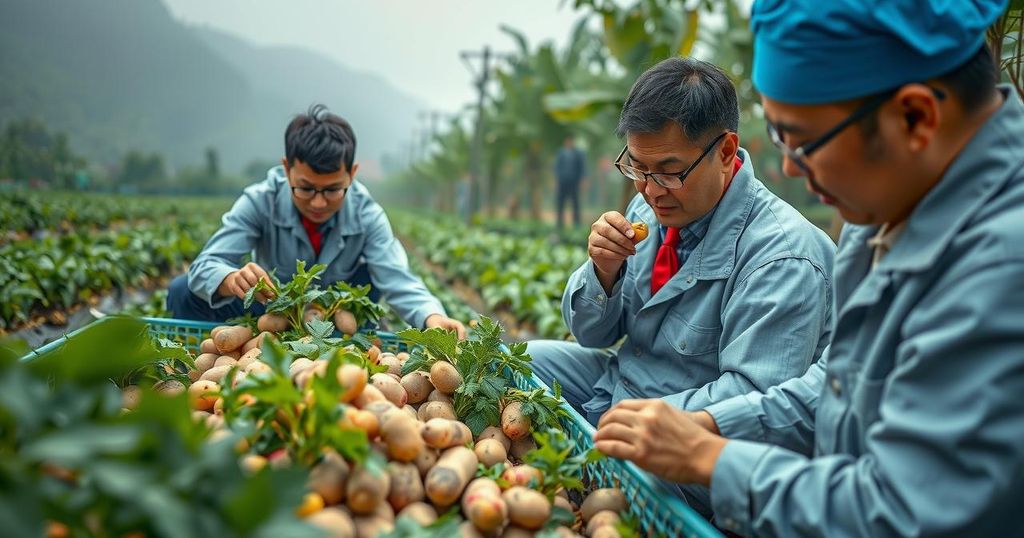Chinese Scientists Work to Climate-Proof Potatoes Amid Rising Temperatures

Chinese scientists are racing to develop heat-resistant potato varieties to combat the adverse effects of climate change on potato yields. Led by molecular biologist Li Jieping at the International Potato Center in Beijing, research reveals that rising temperatures could drastically reduce yields while accelerating growth rates. Farmers, facing extreme weather, are seeking varieties less susceptible to disease, emphasizing the urgent need for agricultural adaptation.
In an urgent response to the threats posed by climate change on global food security, Chinese scientists are intensifying efforts to develop climate-resistant potato varieties. Potatoes, being pivotal to food supply due to their high yield, are increasingly endangered by rising temperatures, which exacerbate disease and blight conditions. At a research facility in northwest Beijing, molecular biologist Li Jieping leads a study examining the effects of predicted warmer climates on potato cultivation, particularly focusing on China’s dominant varieties.
Recent findings from Li’s team at the International Potato Center (CIP) indicate that under higher temperature conditions projected for the end of the century, potato yields could slump by over 50%, despite an acceleration in tuber growth. The study, published in the journal Climate Smart Agriculture, underscores the urgency as global temperatures rise towards a potential increase of 3.1°C by 2100—placing immense pressure on agricultural sectors worldwide.
Farmers in China are already facing the ramifications of climate-induced extreme weather, leading to demands for more heat-resistant and higher-yielding potato varieties. The CIP is collaborating with the Chinese government to develop these vital adaptations. In research greenhouses, workers are cross-pollinating potato flowers to cultivate varieties that can withstand the impending challenges brought on by climate change. Li emphasizes that immediate action is required, suggesting farmers adapt their planting schedules to mitigate these risks.
As the world grapples with the ongoing impacts of climate change, the agricultural sector remains a pivotal focus due to its significance in ensuring food security. Potatoes, as a staple crop with high nutritional value and yield, are particularly vulnerable to the adverse effects of climate change. This vulnerability is highlighted by increasing instances of extreme weather patterns, including heat, drought, and flooding, which threaten crop outputs globally. Scientists, such as Li Jieping and his team at the CIP in Beijing, are at the forefront of research aimed at developing resilient potato varieties to shield against these climatic shifts.
In conclusion, the pursuit of climate-proof potato varieties by Chinese scientists is a critical measure in safeguarding global food security. With mounting evidence of climate-induced agricultural challenges, the research conducted by Li Jieping’s team at the International Potato Center represents a significant step towards developing adaptive strategies. It is imperative that the agricultural community embraces innovation to combat the potential crises stemming from climate change effects on crop yields, particularly potatoes which are integral to many diets across the globe.
Original Source: www.aljazeera.com






